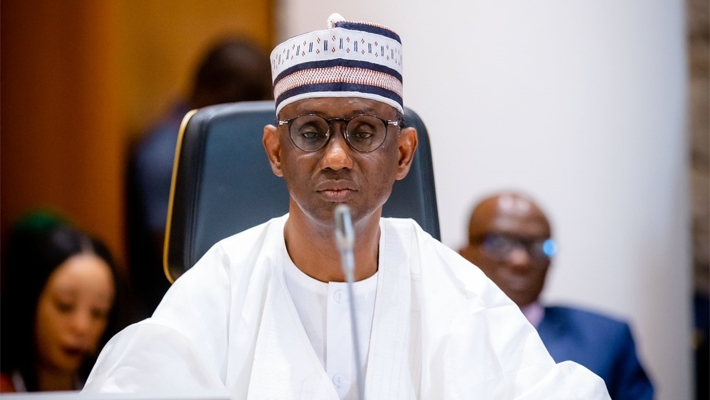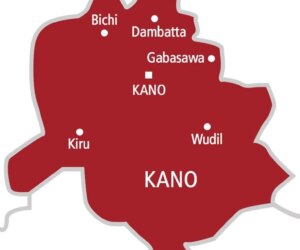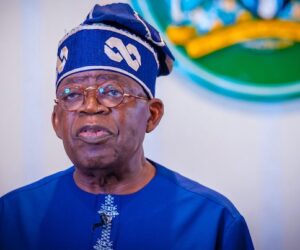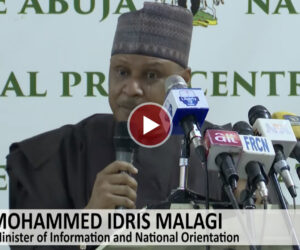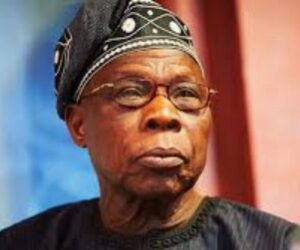There have been repeated calls on the federal and state governments to negotiate with and grant amnesty to terrorists and bandits who are responsible for widespread insecurity in Northern Nigeria. In this report, BENJAMIN SAMSON scrutinises the move, wondering whether or not it will end insecurity in the region.
The latest of such calls came from a group called Northern Elders Progressive Group (NEPG) to Northern governors to cooperate with the Office of the National Security Adviser (ONSA), in pursuing dialogue with bandits. The group’s coordinator in the North-west, Yusuf Abubakar, said the Forum was encouraged by non-kinetic measures being championed by the National Security Adviser, Malam Nuhu Ribadu, and other stakeholders to restore peace.
“We are happy with the steps being taken so far. Travelling recently from Sokoto to Gusau, and from Funtua to Zaria, I observed a more peaceful atmosphere. Compared to before, there is improvement in security, in patrols, and in the safety of commuters along that road,” Abubakar said.
He urged governors to embrace dialogue, insisting that it’s a more effective option than repeated condolence visits and military operations that overstretch security forces.
Admonitions
Speaking with this reporter, the coordinator of the Arewa Vanguard for Good Governance (AVGG), Isa Jafaru, welcomed the decision, asking other Northern states’ governors to take a cue from the Kaduna state governor, Senator Uba Sani, who granted amnesty to repentant bandits operating in the state.
While hailing the governor for his leadership style, the group said he has set the trail to end the activities of bandits in northern Nigeria.
He said, “With several senior bandit leaders coming out to surrender their arms and embrace peace, alongside their followers, there is hope that banditry can be tackled once and for all.
“The decision to consider dialogue and amnesty for the bandits for peace to reign in the region is not only laudable, but a creative approach to ending what has destroyed the image and hindered progress and development of the north and its people.
“We have clamoured for amnesty for bandits as a means to end the incessant attacks and killings of our people. With this singular effort, we can confidently say there is a ray of light now.”
Continuing, he said, “However, the programme must adhere to international standards of disarmament, de-mobilisation and re-integration, ensuring that these individuals can return to society as productive citizens.
“The good news also is that the governor promised that these individuals are going to be enrolled in a rehabilitation programme designed by the state governments in partnership with the federal government for re-integration and complete ceasefire.”
Also speaking, a security analyst, Abdulkadir Salau, said negotiation is the best way out of the current security situation in the North.
He said, “The major causes of this problem are poverty and ignorance. So, I believe that as Nigerians, if they are called upon or if the government now comes up with a rehabilitation programme, I am sure we will have a successful end to this crisis.
“It is better for a governor to spend his resources on saving lives than spending billions on condolences. One life is far more important than any political gesture.”
He continued: “Even powerful nations have negotiated with groups like the Taliban, Al-Qaeda, and the Houthis. Negotiation is not weakness; it is about saving lives.
“It is unbecoming of a leader to say he knows the movements of criminals, but does nothing with the information. Such propaganda is irresponsible. Negotiating with the terrorists could result in a reprieve for residents of rural communities and motorists plying dangerous roads.”
Negotiation not magic wand
However, a retired Divisional Police Officer, Muktar Jallo, who served in one of the northern states bedeviled by insecurity, told this reporter that negotiating with bandits will not bring an end to the security challenge.
He said, “Bandits, unlike other terrorists who believe they are prosecuting a holy religious war over the years, have no clear-cut ideology and no known leader. Each terror group has its leader. That has remained a puzzle yet unsolved. Who is the government negotiating with?
“A negotiation with one or more terror groups does not apply to all terror groups. That played out in Katsina state in 2016, when terrorists who were against the negotiations killed those who participated in it.
“A few days after the meeting between officials of the federal government and terrorists in Faskari of Katsina state, 24 students of the Federal University Gusau were abducted. It shows that the peace meeting left a wide gap to fill with a newspaper report suggesting that the abduction was staged by one of the sidelined terrorists to register his anger.
“Negotiation with top terrorists encourages leaders of smaller terror groups to scale up their activities to gain attention from the government. The terrorists in the North-west have over the years shown how cunning they could be; they cannot be trusted. “
CSO kicks
Similarly, speaking with this reporter, the president of League of Northern Democrats (LND), a civil society organisation, Yushau Malqui, has kicked against negotiating with bandits and other criminal elements terrorising the north.
He said, “The abduction of 40 worshippers from a mosque in Zamfara State on September 15 amid negotiations was the latest humiliating proof that offering olive branches to terrorists is futile.
“Supposed peace talks were ongoing when the marauders surrounded a mosque in Gidan Turbe village at 5:30 am and abducted the worshippers at gunpoint.
“During early morning prayers on Friday, the bandits boldly carried out a similar invasion at Yandoto, Tsafe LGA in Zamfara. They massacred five worshippers and abducted several others.
“Zamfara’s appeasement policy is not an isolated case. Overtures to these mindless killers are common in neighbouring Katsina, Kaduna states and beyond, to no lasting effect. Terrorists do not care about peace deals.”
He added; “Pardons and amnesties do not change them. Neither does de-radicalisation, nor absorbing them into the security forces. Their only agenda is plunder, extortion, killings, and a caliphate. Therefore, state governments should no longer engage in ‘peace’ negotiations with terrorists. Instead, Nigerian troops should crush them decisively.
“The futile dalliance with bandits exposes Nigeria’s worst frailties: inability to understand that negotiating with bandits amounts to surrender. The government’s primary duty is not to haggle with murderers. It is to shield citizens from arsonists and extortionists who burn villages and rape communities. The 1999 Constitution projects a country where ‘security of life and property’ is guaranteed. But, in 2025, Nigeria tries to buy protection from the very killers it should be hunting down.
“In 2022, an emir in Zamfara conferred a chieftaincy title on a notorious bandit leader. In Katsina, the government appealed to bandits to lay down their arms for amnesty. This is not tact or diplomacy. It is a surrender to non-state actors that yields no fruit. Rather, it leaves behind a trail of abducted children, widowed mothers, and shattered economies.”
Likewise, a security expert, Uche Aniogu, said, “The bandits scoff at the naivety of peace deals because they know the truth; they have no central command, no unified hierarchy to broker with, no single warlord to hold accountable.”
He said, “They are loosely affiliated gangs – some Fulani herder militias, others opportunistic rustlers, kidnappers and robbers – all driven by greed. They are scattered across the North-west and Middle Belt. Negotiate with one group in Katsina, and another one strikes in Zamfara.
“So, peace deals with bandits are pointless, a charade that emboldens the killers while eroding public trust in the security system. These are not war-wearied men seeking a handshake of truce. Their ideology is dominion. For the jihadist group Boko Haram and its splinter, ISWAP, the endgame is a caliphate carved out of Nigeria, where Sharia is not debated, but enforced at gunpoint.”
Aniogu also said, “They reject the secular state not through ballots but by beheadings, viewing compromise as apostasy. Boko Haram’s founder, Muhammad Yusuf, preached that Western education is satanic; his successors, Abubakar Shekau and the ISWAP faction, have turned that venom into a genocidal crusade.
“Terrorist groups like Boko Haram have an insatiable appetite for chaos.
“So, Nigeria’s troops must counter them with technology and superior firepower in this asymmetrical warfare. But tech alone won’t suffice. Nigeria must root out the blood-soaked gangs by cutting their supply lines and starving them of funds. Their collaborators and enablers in various communities must be fished out and dealt with. Deals and amnesties won’t work.”
In other climes
Speaking in an exclusive interview with this reporter, a lecturer in the Department of History and International Relations, Federal University, Lokoja, Dr. Sola Adedeji, urged the federal government to adopt models used by other governments to quell insecurity in their countries.
He said: “Colombia dismantled the Revolutionary Armed Forces of Colombia (FARC) that terrorised the country for five decades, killing 220,000, displacing 5.7 million, and fuelling a narcotic nightmare.
“FARC, like Boko Haram, was ideological, rural-rooted, and funded by extortion and drugs. Early peace talks flopped; violence escalated. Then came the Plan Colombia in 2000: a full-scale United States-backed onslaught with a $10 billion war chest.
“With 300, 000 troops, aerial herbicide spray on coca fields, and bolstered intelligence, the terrorists were on the back foot. President Álvaro Uribe’s “Democratic Security” policy flooded FARC heartlands, eliminating leaders like Raul Reyes in 2008.
“Sri Lanka, too, crushed the Liberation Tigers of Tamil Eelam in 2009 after 26 years of suicide bombings and child conscription that killed 100,000. An all-out offensive – sea, air, ground – starved Tamil Tigers, killing their leader Velupillai Prabhakaran.
“Peru equally routed the Shining Path in the 1990s via intelligence operations and rural development, capturing Abimael Guzman in 1992, and collapsing the Maoist cult that slew 70, 000.
“The winning strategy: erode their capacity with decisive force, and invest in rural areas, usually the recruitment ground for terrorists.
“Nigeria must adapt. It should invest in effective countermeasures, step up drone infrastructure, and embrace AI-driven intelligence. Special troops should patrol the Sahel with the buy-in of the authorities there, since most sub-Saharan countries face a common enemy.
“Peace overtures to murderous marauders are insulting to Africa’s most populous country. So, President Bola Tinubu, the governors, and service chiefs must end the carnage. In captivity or death, the worshippers of Gidan Turbe, the police officers of Agu Centre, and the farmers of Borno demand justice, not bargain with butchers.”
DHQ dissociates
Meanwhile, the Defence Headquarters has clarified that granting amnesty to surrendered terrorists and bandits is not within the purview of the military. It noted that such decisions lay with other arms of the government.
The Director of Defence Media Operations, Maj.-Gen. Markus Kangye, made the clarification during a recent press briefing in Abuja.
Kangye said while the development was a reflection of the on-going successes in both kinetic and non-kinetic military operations, the decision to grant amnesty lay outside the military’s mandate.
He said, “Amnesty is not what we do. We are to do our job according to our rules of engagement and operational directives.
“If from the operation conducted, people are arrested and handed over, and an amnesty is to be given to them, it’s not the military that determines that.
“Their cases will be studied, and based on merit, the relevant government agencies responsible for amnesty will act.”

